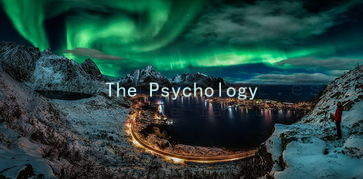The Psychology of Desire: How Emotions Shape Your Sexual Experience
The Psychology of Desire: How Emotions Shape Your Sexual Experience
Desire, a complex interplay of emotions and biological impulses, significantly influences our sexual experiences. Understanding the psychology behind desire can significantly enhance our relationships and intimate encounters. When considering how emotions shape our desires, we must explore several key factors: emotional connection, societal influences, individual psychology, and communication.
At the core of human attraction lies emotional connection. It is well established that feelings of love, care, and trust can amplify sexual desire. When partners nurture a strong emotional bond, they create a safe space where vulnerability can flourish. This connection not only heightens attraction but also enriches the sexual experience itself. Studies have shown that individuals who feel emotionally secure with their partners are more likely to enjoy and engage in fulfilling sexual encounters. Thus, establishing and maintaining an emotional connection is paramount for enhancing desire.
Societal influences also play a crucial role in shaping our desires. Cultural norms and expectations significantly dictate what is considered desirable behavior in romantic relationships. For instance, media portrayals of romance and sexuality can set unrealistic standards, leading individuals to develop desires based on comparisons rather than genuine feelings. This often manifests in distorted views of what intimacy should be, creating pressure that can suppress authentic sexual expression. It is crucial to recognize these societal constructs and focus on individual desires rather than conforming to external expectations.

Individual psychology also deeply affects our experiences of desire. Factors such as self-esteem, past relationships, and personal experiences can shape how we engage sexually. For instance, someone who has experienced trauma may find it challenging to connect emotionally, thereby impacting their sexual satisfaction. Conversely, individuals with high self-esteem are likely to be more open to exploring their desires and communicating them effectively with their partners. Understanding one’s own psychological landscape can lead to improved intimacy, as individuals learn to navigate their desires and limitations.
Communication emerges as a cornerstone in understanding and fulfilling desires. Open dialogue about sexual preferences, boundaries, and fantasies is essential for healthy relationships. By fostering a culture of openness with partners, individuals can create an environment where both parties feel secure in expressing their needs. Effective communication allows partners to align their desires, leading to increased satisfaction and intimacy. It encourages an exploration of shared fantasies and helps to negotiate boundaries, ultimately enhancing both emotional and sexual experiences.
In conclusion, the interplay of emotions and desire is a vital aspect of human sexuality. By embracing emotional connections, critically examining societal influences, understanding individual psychology, and fostering open communication, individuals can enhance their sexual experiences. Ultimately, recognizing the psychology of desire can lead to healthier, more fulfilling relationships and a deeper understanding of oneself and one’s partner. Such awareness not only enriches our intimate encounters but also fosters lasting bonds that transcend the physical aspects of love.





